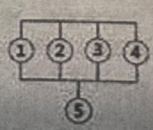A few weeks ago, we attended a lesson given by our classmate Wu Ruijie who talked about some of her experiences in America. It was very interesting and lively, we all listened carefully and were moved by the lesson.
During the lesson, she shared some stories about her daily life in the United States with us and some culture shocks(文化冲突) that she experienced. I still remember the story she told which took place in the New York subway. One day, she was talking to her Chinese friend on her mobile phone while a black woman was standing beside her. She often used a Chinese word whose pronunciation was similar to the rude N-word, so the black woman started to very angrily glare at (怒视) her. This was only one of her stories.
Ms. Tang also shared a story she had experienced when she was in Australia. On a hot sunny day, while she was walking on the street holding an umbrella to protect her from the strong sunlight, suddenly a man behind her said to her, “is it raining?” The reason is that in Australia people don’t use umbrellas on sunny days, so the man thought it was strange and asked Ms Tang.
Through the embarrassing stories, we can see many differences from country to country to decide how we should face these situations when we go abroad. Here are some suggestions: First, we should respect everyone wherever we are. Second, learn some local culture before you get there. Third, if you make some mistakes, you should explain the reasons. Finally, keep a kind heart at all times.
All in all, culture shock is not a big deal as long as we treat others kindly. Please pay attention to learning Western culture.
【小题1】If you say a word similar to the N-word to a black man, he will think__________.| A.you are interesting |
| B.you are boring |
| C.you are lonely |
| D.You are unfriendly |
| A.should only respect the local people |
| B.should leave the country at once |
| C.should keep a kind heart at all times |
| D.should take a lot of money with us |
A. | B. | C. | D. |
| A.show people how to respect the black woman |
| B.encourage people to be more active |
| C.give suggestions to deal with the culture shock |
| D.share some interesting stories with people |


